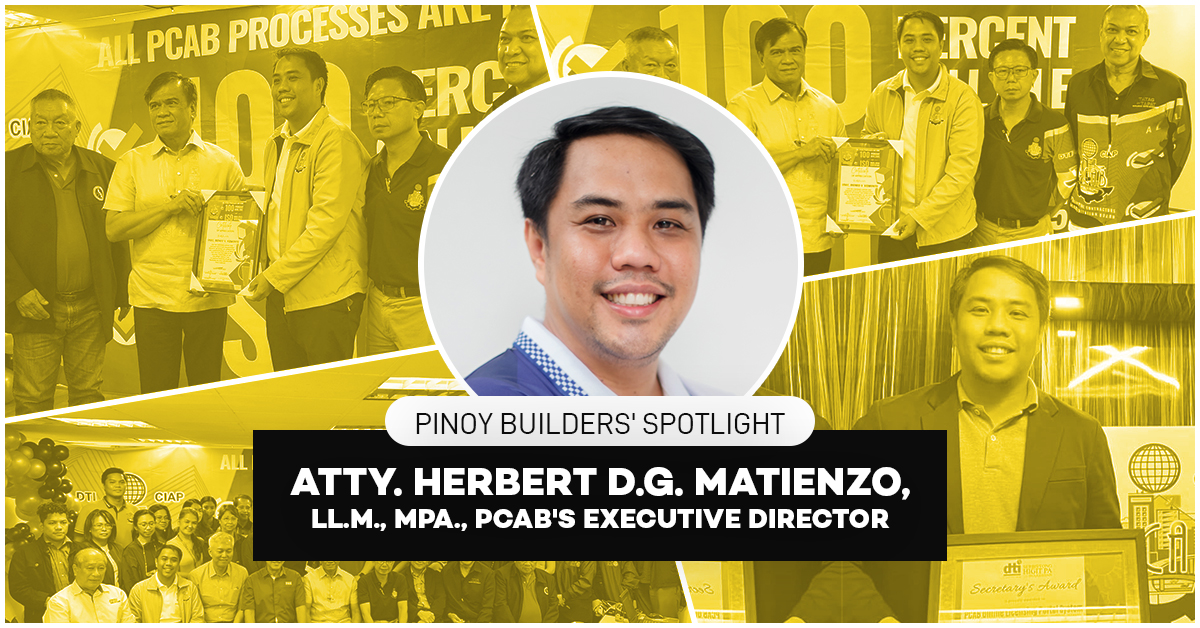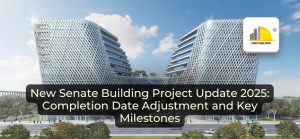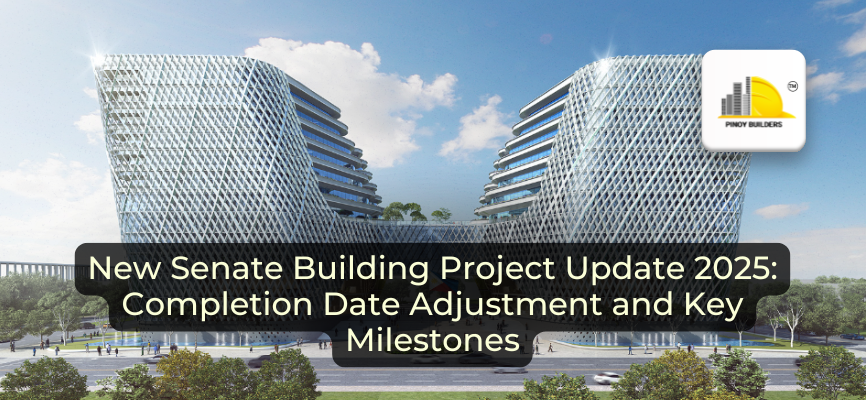PCAB stands for Philippine Contractors Accreditation Board, which is a government agency in the Philippines that regulates the construction industry. PCAB issues licenses to contractors who wish to operate in the country and offers accreditation to those who meet its standards.
The PCAB license is required for any contractor who wants to engage in construction projects in the Philippines, including both public and private projects. The license ensures that the contractor has met certain requirements, including technical, financial, and legal requirements, to operate in the country. The PCAB license also specifies the contractor’s classification based on the size and scope of the projects they are allowed to undertake.
Put simply, the PCAB license is a legal requirement for contractors operating in the Philippines and is a way for the government to ensure that the construction industry meets certain standards of quality and safety. It’s an essential requirement for every contractor and company to start their projects.
To better understand PCAB, we reached out to the organization for an interview that highlights its goals for the construction industry.
Pinoy Builders had the honor of interviewing PCAB’s Executive Director, Atty. Herbert D.G. Matienzo, LL.M., MPA, for our Builder of the Month.
“At some point in my life I will go back to the government after my private practice or once na natapos na or di naman nagsawa, or ibang path na yung gusto kong tahakin sa professional na life ko.”
Q. Being an accomplished lawyer, how did you end up joining PCAB and what made you decide to work in PCAB?
ATTY. HERBERT: Well, first, thank you for commenting that I’m an accomplished lawyer. It means a lot. So, how did I enter PCAB? I was invited to apply by the then supervising USEC of the construction industry of the Philippines USEC Ruth Castelo. So it started around February of 2017, I went through the process, several examinations, both instituted by DTI, NCEAC, and my chairman. And I passed, fortunately, then I got hired exactly August 31 of 2017.
Q. What made you decide to work in PCAB?
ATTY. HERBERT: One is government service. My mom and my dad used to be a public elementary teachers. They worked for the government. Bata pa lang ako, alam mo na din na at some point in my life I will go back to the government after my private practice or once na natapos na or di naman nagsawa, or ibang path na yung gusto kong tahakin sa professional na life ko.

Q. How is your experience working for PCAB so far?
ATTY. HERBERT: Hindi siya naging madali at the start, nung simula, kasi I came in as a newbie and in fact, bago ko tinanggap yung invitation ni USEC Ruth that time, I asked if there’s someone that is qualified inside the organization. Otherwise, if mayroong isang qualified or how many man sila, I will not apply because I believe magiging ano lang siya eh, magiging stressful tapos may tension sa mga na maaapakan mo na qualified naman sa trabaho.
I was a bit shocked nung simula – when I got into na sa PCAB because I never imagined that national pala yung scope nung agency. I had to adjust immediately. In fact, during my interview with my chairman, Chairman Ricky Dacay, he gave mo ano eh, three months na parang ano, immersion. For me to be acclimatized with the organization, with the culture, of not just PCAB, but the entire construction industry particularly with regard to licensing.
Hindi siya naging madali but with the guidance of my Chairman, the board members, and of course, my supportive staff, naging seamless naman yung transition from private practice to government service.
Q. What were the things that stood out to you and the organization?
ATTY. HERBERT: Well, the first one is dedicated yung mga staff ko sa trabaho. Yun yung kauna-unahang napainsin. Unfortunately po sa gobyerno, may mga times po na kulang sa budget, sa pampasweldo, sa pambayad ng overtime, and yet my staff still deliver through the years na maibigay po nang tama yung serbisyo dun sa mga nag-aapply ng mga lisensiya – particular sa mga nag-rerenew ng lisensya. Prior to 2022, prior to the amendment of the Republic Act No. 4566 or the Contractor’s Licensing Law, all licenses expire all at the same time every June 30. And in 2018, if you will remember, the Ease of Doing Business Act was approved by then President Duterte—which established the number of working days wherein you should approve the process applications in the government, particularly in licensing. So, in that regard, we had to really work hard, mas triple pa yung ibigay na dedication sa trabaho para matapos at hindi kami masabihan na we’re not following the periods provided in the Ease of Doing Business Law.
“We had to really work hard, mas triple pa yung ibigay na dedication sa trabaho.”
Q. What was your direction to take PCAB to the next level?
ATTY. HERBERT: Well, ang una kong napansin nga it will really be hard and difficult for us to cope up with the demands of issuing with the licensing in accordance with the periods provided in the ease of doing business law. My initial project then was to approach some of the members of the House of Representatives and the members of the Senate to amend the Republic Act 4566 – to change the validity period of the licenses. The Republic Act No. 4566 was active in 1965 so hindi pa yata po nagkakakilala ang magulang ko, batas na po ata yung RA 4566. And, the construction industry is growing.
When I entered PCAB in 2017, we only had around 9,000 licensed contractors and right now we are nearing 19,000 or 20,000 na po for this year. And hindi po naamyendahan, it will be really hard for us to cope up with the increasing number of licensees and at the same time, process their applications in accordance with the Ease of Doing Business Law. So that’s the first direction po na gusto namin tahakin has the law amended.
Of course, it was not easy because hindi naman po naka-depende sa amin but of course the members of the house, both in the Lower and the Upper House and most especially the President and luckily for us, luckily for the construction industry, before President Duterte ended his term last year in May, to be exact, he signed into law Republic Act 11711 which provided some amendments to Republic Act 4566; particularly the changing of the validity periods for all the licenses issued by PCAB. It also amended the fees to be paid and may bonus po yun, allowing PCAB to retain our collections so we can use it to continue our operations in terms of licensing and registration of contractors.
Q. As the Executive Director of PCAB, what do you bring to the organization?
ATTY. HERBERT: I came in as a newbie so I came in with a fresh perspective. Second, I was relatively younger back then, I was only 33 that time or 34, so bata po ako, I had fresh ideas, I came from the outside, so alam ko po yung nararamdaman yung mahaba yung pila, nakapila maghapon, so yun po yung ayaw ko talaga. Yung may nag-iintay. Ayoko po ng mabagal, mahaba yung pila sa labas. Ayoko po nung pinahihirapan yung mga nag-apply. So, as much as possible gusto ko po seamless po yung trabaho. Yun po ang naging training ko when I was practicing when I was a lawyer.
Q. What do you think is the importance of PCAB in the construction industry and the contractors?
ATTY. HERBERT: Magandang tanong kasi every time we are invited to speak lagi nilang tinatanong why do you need the license? And I always use the example provided by my Chairman – Chairman Dacay always uses example, ganito, when the doctor in the operation wala po siyang lisensya, mali po siya ng pag-oopera, isang pasyente lang po ang maapektuhan. Maaari po siyang hindi gumaling or worse baka mamatay. Ganun din po sa contractor. Kung siya po ay walang lisensiya, wala po siyang qualification to be a licensee or contractor, for example gumawa po siya ng isang government bridge or government road, na madami pong gumagamit, bumagsak po bigla yung tulay, madami pong masasaktan, pwede pong may mamatay, so ganun din po ang pinaka madaling explanation kung bakit kailangan ng lisensya. Kung bakit we are all for regulating the contractors for the safety of all that are using the projects that they are completing or doing.
“Wag po kayong gumamit ng fixers. This will not help you in any way, mapapahamak pa po kayo.”
Q. What is the vision of PCAB for the Philippine’s construction industry?
ATTY. HERBERT: This year, we were able to attain our 100% online na po kami. So all submissions for licenses online na. You don’t need to go to the offices both here in Makati and the Satellite offices of CEAP, we call them window offices all around the country; I think we have around 11 of them so we don’t need to go there to submit your application.
Nasa bahay ka lang, you can submit online, and pay online, even download the license online. So you don’t really need to get out of your office or home para lang mag-apply. And aside from that, naging vision ko rin kasi na magpa ISO. Kasi mas maganda po sana na ISO-certified ang aming procedures so we were also able to attain that last year. And we plan to retain it for the next 3 years na para mag pa certification if there’s a need or kung may bago pong ISO certification. We will aim for PCAB to be certified po doon sa bagong certification ng ISO. Now, with regard to online licensing, we’re still updating our program our system, expect us to issue some updates for our applicants to use it more— para mas maging user friendly yung system, still in line pa po ang proseso, remove some of the requirements we find redundant or no longer necessary, so yun po yung direksyon po ng PCAB.

To be ISO-certified still, and streamline further the processes that we are imposing in terms of applying sa lisensya and dahil nga po naamyendahan na yung RA 4566 by RA 11711, mas mabilis na po yung pag-iissue ng aming lisensya dahil iba’t iba na po yung validity release ng mga contractors’ licenses.
Q. Our audience asks if there are any tips that you can give to small and medium companies who are applying for a PCAB license for the first time.
ATTY. HERBERT: Number one tip, wag po kayong gumamit ng fixers. This will not help you in any way, mapapahamak pa po kayo. In the last 3 years, we need efforts to really streamline the process and in fact, yung renewal po before we introduced the online portal. There are 24 requirements na kailangan mong ipasa when we issued the online portal or when we launched the online portal in 2020 June, it was cut down from 24 to 9 and now, yung 9 po naging 8 pa. So number one wag kayo mag fixers. Yun po yung unang-una kong advice sa gusto magpa lisensya. Whether gusto niyo magstart ng malaki o maliit. Then accessible po ang PCAB. Nag-venture na rin po kami sa social media. So if you have questions regarding how to apply, we are happy to help you by responding to your questions via the social media accounts that we have. We have Youtube, Facebook, and I think Instagram meron din po. Of course, our official email addresses. We usually respond within the day to address your concerns. Our record and information division has been active in the last 3 years because meron na po kaming designated na Division Chief for that division, who is handling po yung aming records and information campaign particularly kung saan ang pag-lilicense.
Q. Another question from our audience asks: what inspired PCAB to start the pakyaw license and how was the reception to the public?
ATTY. HERBERT: This was actually coined by the Chairman Dacay – matagal na po. When I entered in 2017 nababanggit na niya sakin, then we noticed in some of our seminars we conducted, in private entities po for example Meralco, Makati Development Corporation, madami po silang namamakyaw kung tawagin po sa Tagalog na mga contractor na hindi po kayang mag-apply ng lisensya not because they don’t want to, but medyo mahirap po sakanila particularly po yung mga network requirement. Kahit po dun sa pinakamababa na 100,000 network requirement, nahihirapan sila. That’s why to give dignity po, dignify po natin yung mga contractors natin dun sa mas mababa pa po sa category, which is pinakamababa is Category E. Chairman Dacay really pushed for the approval of Pakyaw License. Right now, we are nearing ano po, at least mga 150 na po ata. I’m sure lagpas na po kami ng 100 licenses for pakyaw. I’d like to believe na nagiging warm naman po yung reception ng public in terms of the application ng pakyaw license.
Q. With the DPWH and the private sector gearing towards sustainable building, how does PCAB plan to support this direction?
ATTY. HERBERT: Well number one, I’m not familiar with the term but they have something similar to an ISO certification. When a particular contractor or a licensee has that certification we give additional points for them pagka nag-aapply sila ng lisensya para makakuha sila ng mas mataas na category sa inaapplyan nila. Yun palang po yung aming napag-usapan dun sa pag-tulong po lalo na sa mga environmental laws and isa rin sa requirement ng pag-apply ng license is for for you to attend that AMO seminar or the Authorized Managing Officer seminar and part of the curriculum is a seminar with regard to environmental laws. Sinama po namin sa curriculum yung environmental laws para maging aware din po yung mga would be contractors ng mga do’s and dont’s sa pangangalaga ng ating environment.
Q. With the infrastructure projects lined up in the coming years, which project are you most excited about?
ATTY. HERBERT: Madami. Number one yung subway. Nag-start na po yan, we issued the license na po doon sa nanalong contractor or foreign contractor na nanalo po dyan. So, we’re excited for it to be na magsimula or matapos and magsama-sama po yung construction dun sa subway na yan.
Second, yung sana matuloy Cavite to Bataan na project na highway na underwater highway po ata kung tawagin or something na ganon – sana po masimulan. Excited din po kami kasi kasama sa pagbibigay namin ng lisensya sa mga foreign companies na nag-aapply, obligasyon po nila na magkaroon ng technology transfer sa kanilang mga local contractor partners. in the future, yun talaga yung ating magiging contractors hindi lang sa headlines, ay talagang magiging globally competitive ang ating mga Filipino contractors po. Itong dalawang examples po na personally I’m excited po na masimulan at matapos.
“That’s why to give dignity po, dignify po natin yung mga contractors natin dun sa mas mababa pa po sa category, which is pinakamababa is Category E.”
Q. What programs or activities are you launching this year to support the construction industry and construction professionals?
ATTY. HERBERT: Madami. Number one, kailangan pa po namin palakasin ang information drive doon sa pakyaw. In fact, dahil may PhilConstruct na po ngayong March sa Luzon, sa Clark po gaganapin, we are there to support PhilConstruct. We have a booth there and may mga seminars din po kami doon sa event. Meron din po kaming booths, mga seminars na inihanda. That’s free, I think so pwede po silang umattend doon. Gaya rin po ng nasabi ko kanina, yun pong ating licensing portal, we intend it to be more seamless, mas madaling gamitin and mas streamline yung proseso. Other than that, yun pong nasimulan na po namin, yung aming Contractors’ Verification website. Wherein all of you, as long as you have internet connection, can check whether a particular contractor is licensed or not. Nagagamit na ito particularly ng governmental agencies, particularly DPWH, whenever they post or qualify a particular contractor who joined their bidding. Nakikita po nila doon sa Contractors Verification website whether 1.) if they are licensed and 2.) if they are qualified for the said project in accordance with particulars stated in their license in the verification website.

Q. I have a few more questions about the future of construction in our country. As an Executive Director of PCAB, how do you see the construction of our country with regards to the rising cost?
ATTY. HERBERT: Naku, mainit na usapin yan sa aming board meetings lately kasi nga unstable o minsan mataas, mababa yung presyo ng mga materyales particularly ng mga bakal, aggregates etc. So yun naman po, pinag-aaralan not just the PCAB board but as well as the other implementing boards under the Construction Industry Authority of the Philippines. Anything may mga measures na po silang na-suggest, not just on our level but on the Legislative bodies po kung saan po they aim to propose bills to address the rising cost and at the same time, ma-address din pati yung presyo ng mga kontrata na pinapabid po ng government. These are among the topics that are being discussed in the board in the last few months po. Parte rin po sya ng construction road map which we launched in 2020 which is the Tatag and Tapat Road Map Construction Road Map so kasama po siya doon sa mga aaksyunan ng Construction Industry Authority of the Philippines with our partners also from the private sector. So hopefully po, in the next few months, magkaroon po ng aksyon po dito yung mga board members po natin sa Construction Industry Authority of the Philippines.
“In our own little way, we are somehow encouraging our contractors, licensees, to use this technology in helping preserve our environment.”
Q. How about manpower?
ATTY. HERBERT: Ang in charge po kasi sa Construction Industry Authority of the Philippines is the Construction Manpower Development Foundation. It’s another implementing agency under CEAB, headed by other board members. Madami rin po silang trainings na binibigay particularly concentrated po sa construction – particularly sa skills related to construction. Kasama din po sila dito sa PhilConstruct sa Clark, so alam ko po mag mga seminars din po doon. In fact, naka-attend po ako sa isa nilang seminar, yung works po kung pano gumamit ng drone with regard to surveying po the construction sites or projects. I think yung skills training po, nag-uupgrade na rin po particularly with the technology para makasabay tayo sa neighbouring countries not just in Asia, but sa buong mundo po siguro.
Q. Another follow-up question, aside from the rising cost and manpower, you mentioned technology. Can you further elaborate technology?
ATTY. HERBERT: Well, yung new technology po, hindi naman po lingid sa kaalaman natin na mdyo advance po talaga yung ibang bansa kaysa sa Pilipinas. That’s why yun pong special licenses are being issued to foreign companies who come in with new technology na either masasabi nating inadequate yung supply sa Pilipinas or talagang wala sa Pilipinas. So ito po yung one way of us in helping the construction industry by bringing in qualified foreign contractors who bring in new technology, noble processes – in the hope of magkaroon ng technology transfer, process transfer sa mga local na partners po nila. Ayun po yung mga maliit naming ambag dito sa pag-address po ng technology naman po sa construction industry.
Q. How about the future of sustainability in construction?
ATTY. HERBERT: Sinusuportahan po ng PCAB yan, gaya nga po ng nasabi ko kanina, kasama po sa curriculum ng AMO seminar ang environmental laws. And pangalawa po, nagbibigay po kami ng additional points sa mga contractors na gumagamit po ng green technology sa kanilang mga projects po. So, in our own little way, we are somehow encouraging our contractors, licensees, to use this technology in helping preserve our environment.
“Become a licensed contractor, kahit po anong category simulan niyo po.”
Q. What is your message to the Pinoy Builders’ audiences and readers?
ATTY. HERBERT: Number one, yun pong panahon ni President Duterte, ang kanya pong sigaw ay Build, Build, Build. Kay President Marcos naman po ang kanya pong call for us is Build, Build, More. I guess it’s a signal for us that marami po talagang balak ang gobyerno in terms of infrastructure projects. And hindi naman po tayo pwedeng sumali sa ganitong construction projects kung wala po tayong lisensya. So ang number one message ko po, mag-palisensya po tayo sa PCAB. Become a licensed contractor, kahit po anong category simulan niyo po. Kahit po sa pinaka mababa o pinakamataas para po maging lehitimong contractor po kayo at makatulong po kayo sa nation building.

Q. Finally, what is your message for future construction professionals?
ATTY. HERBERT: As a lawyer, I never imagined that I would give this advice. In the board that I’m in, I’m with Sid Consunji, who is considered to be the Father of the Construction industry in the Philippines; ang laging advice, mag-aral, mag-aral, mag-aral. So talagang tuloy-tuloy lang po ang pagpapaigi ng sarili sa larangan ng construction. Kaya po yun lang po ang maipapayo ko po. Talagang study, study, study. Wag niyong tigilan ang pag-aaral para mapaunlad pa ang sarili lalo na sa larangan ng construction business or contracting.
“Wag niyong tigilan ang pag-aaral para mapaunlad pa ang sarili lalo na sa larangan ng construction business or contracting.”
Atty. Herbert is just one of the professionals who continuously work to make our construction industry better. May his words serve as inspiration to future construction professionals and guide those presently in construction to further enhance the industry – one step at a time.
Do you want to see more content like this in the future? Subscribe to Pinoy Builders for FREE today and stay in the loop for the latest news and updates on the Philippine construction industry!








